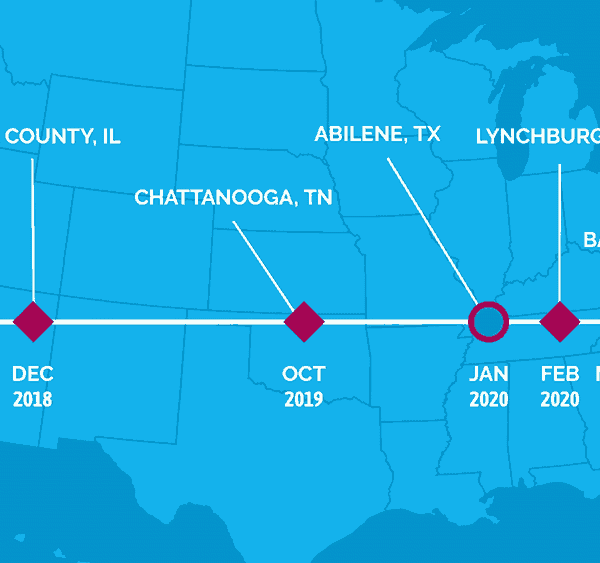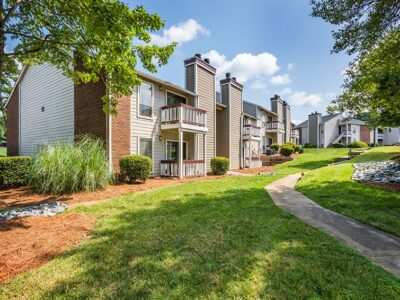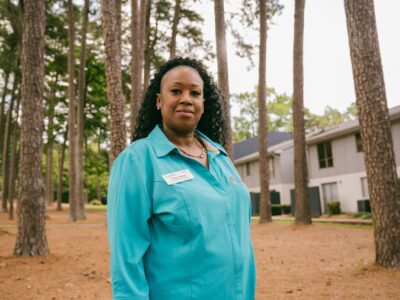- Community Solutions leads Built for Zero, a national initiative of more than 80 communities working to measurably end homelessness, beginning with veteran or chronic homelessness.
- The MacArthur Foundation’s 100andChange grant will be used to accelerate the impact of Built for Zero. This includes helping 75 communities reach a functional end to veteran or chronic homelessness by 2026.
- Communities in Built for Zero work toward ending homelessness for all, focusing on one population at a time. To date, 15 communities have solved homelessness for a population, reaching a milestone known as functional zero.
Today, the MacArthur Foundation awarded a $100 million grant to Community Solutions to accelerate an end to homelessness in 75 U.S. communities by 2026. The Foundation’s Board selected Community Solutions from the six finalists in 100&Change, MacArthur’s global competition to fund a single proposal that promises real and measurable progress in solving a critical problem of our time.
“Homelessness is curable. For too long, homelessness has been viewed as intractable and pervasive, rather than a crisis worth solving,” said MacArthur President John Palfrey. “More than 568,000 people experienced homelessness on a given night in the United States, before the pandemic. Community Solutions has proven that people do not have to live this way. Its racially equitable response is primed for this moment.”
Community Solutions will use the $100 million grant to implement and scale Built for Zero, a national initiative of communities using a data-driven public health approach to measurably end homelessness.
“We are deeply honored that Community Solutions and the Built for Zero movement have been selected as the award recipient of the MacArthur Foundation’s 100&Change competition,” said Rosanne Haggerty, President of Community Solutions. “The award is a powerful endorsement of our shared belief that homelessness can and must be solved. It is also a testament to the leadership of communities in Built for Zero that are proving it is possible every day. We are grateful and eager to seize this historic moment in our country to build a future where homelessness is rare and brief.”
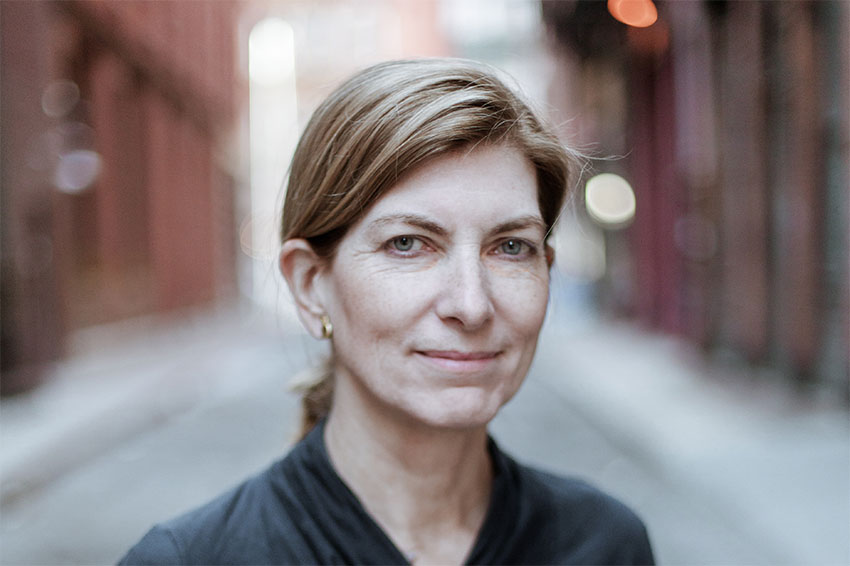
“The award is a powerful endorsement of our shared belief that homelessness can and must be solved.”
—Rosanne Haggerty, President of Community Solutions
BUILT FOR ZERO
Community Solutions leads Built for Zero, a national initiative of more than 80 communities in the United States working to measurably end homelessness. To date:
- 15 communities have reached functional zero for chronic or veteran homelessness
- 51 communities have achieved a measurable reduction in homelessness
- 83 communities have achieved quality, real-time data
Communities in Built for Zero work towards functionally ending homelessness for all, usually beginning with veteran or chronic homelessness. Communities work to reach and sustain functional zero, a definition for ending homelessness that accounts for the dynamic nature of homelessness. Functional zero ensures that systems are in place to ensure homelessness remains rare and brief for a population.
The heart of the Built for Zero methodology is community-wide collaboration and the use of quality, by-name data. This data allows the community to understand:
- The name and needs of every person experiencing homelessness
- How many people are experiencing homelessness, and how that number is changing month over month
- The dynamics of homelessness within a community, including inflow (how many people became homeless) and outflow (how many people were able to exit into housing)
Using this data, communities are better to triage the needs of every individual in need of support, implement and test systems changes, target resources, and understand whether collective efforts are driving reductions in homelessness.
Additionally, Built for Zero communities apply a measurement framework to ensure that the system produces racially equitable outcomes.
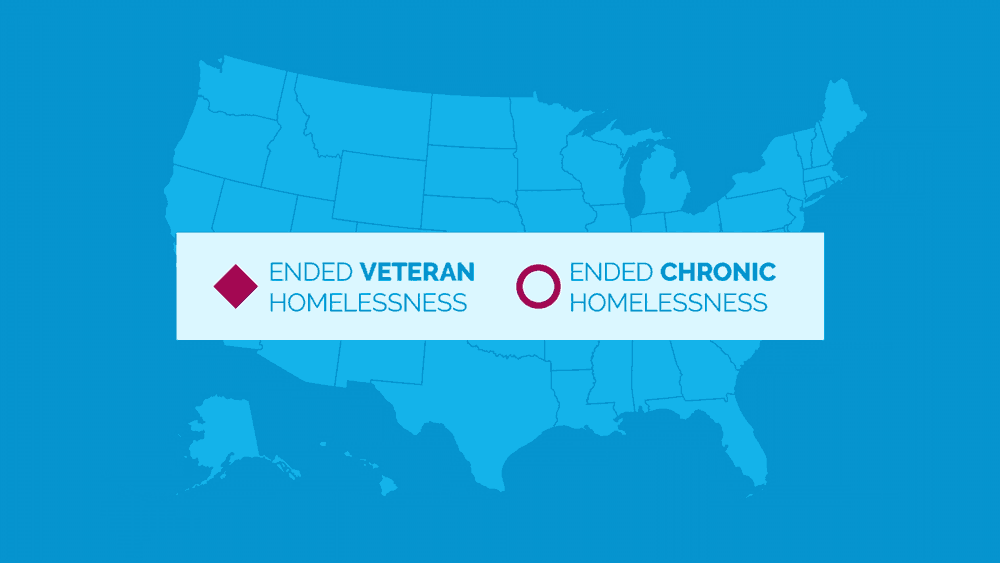
THE #100ANDCHANGE PROPOSAL
With the support of the MacArthur Foundation, the organization aims to accelerate an end to homelessness in the United States.
This includes helping at least 75 diverse communities reach and sustain functional zero for chronic or veteran homelessness by 2026. By helping this critical mass of communities reach functional zero, Built for Zero aims to demonstrate that homelessness is solvable in a variety of contexts, seeding new expectations for what is possible. The composition of communities in Built for Zero is 25% rural, 37% suburban, and 38% urban, including six of the 20 largest U.S. cities by population.
Seventy-five communities represent approximately 20% of the 400 Continuums of Care in the United States, the entities that coordinate HUD funding for homelessness.
This approach focuses on helping communities reach functional zero for veteran or chronic homelessness, with the intention of helping this achievement accelerate their progress to other populations, like youth, family, and all singles.
The initial proposal targets nearly half of the award for supporting partner activities, and direct housing and staffing investments in Built for Zero communities. This includes a fund which will enable communities to leverage innovative social impact investment models to address identified housing gaps.
In order to create more enabling conditions for all communities to reduce and end homelessness, the organization will also target data and technology requirements, funding incentives, and public policy.
Community Solutions is grateful for its core partners, which have been integral to the progress of Built for Zero and participating communities to date.
Connie Ballmer, Co-Founder of Ballmer Group, said: “Ballmer Group has enthusiastically supported Built for Zero because it embodies the power of a community-wide, data-driven effort to deliver real, measurable results. With a rigorous commitment to outcomes that matches the urgency of the problem, Community Solutions has helped cities and counties challenge the status quo on homelessness and build more equitable communities. We are proud to continue our support of Community Solution’s leadership and methodology, and we congratulate Community Solutions on receiving MacArthur’s extraordinary award and vote of confidence.”
Jay Farner, CEO of Rocket Companies, said: “One of the guiding principles behind our organization’s success is being ‘obsessed with finding a better way.’ I am proud to say this principle is shared by our partners and friends at Community Solutions. Their focus on constant improvement and innovation is what attracted us to become a lead partner of the Built for Zero movement, and the key reason why they were recognized as the winner of the MacArthur Foundation’s prestigious 100&Change competition. Every day, Built for Zero is helping communities across the country make meaningful, measurable progress on an intractable issue that too many believed to be unsolvable. Powered by this new $100 million grant, we are hopeful that the Built for Zero movement will aid communities across the country in working to end veteran and chronic homelessness for good. Congratulations to Community Solutions on this tremendous achievement!”
John Vu, Kaiser Permanente’s national vice president for community health, said: “Kaiser Permanente is proud to have partnered with Community Solutions since 2109 to end homelessness in communities across the country. Our partnership stems from our commitment to improving the health of the communities we serve, and a deep understanding that housing is health. We look forward to continue working together, and with the MacArthur Foundation, to accelerate progress in Community Solutions, and Built for Zero communities across the country, which have demonstrated that homelessness is a problem that can be solved.”
Neal Myrick, Global Head of the Tableau Foundation, the philanthropic arm of Tableau Software and partner in Built for Zero, said: “Homelessness is a monumental challenge, but Community Solutions and the Built for Zero communities across the country are proving every day that it is solvable. Their innovative, robust, and deeply human approach to data makes it possible to see, in real time, the reality of homelessness in their communities, and meet the unique needs of people experiencing it. Their approach is individual and humanistic—yet scalable. By awarding Community Solutions with the 100&Change award, the MacArthur Foundation is affirming the Built for Zero idea that homelessness can become a thing of the past—not just in the 14 communities who have already ended homelessness, but everywhere in the country. This work is critical every year, but amid a pandemic that’s destabilized housing for so many, and a reckoning with racial injustice that’s shown how homelessness disproportionately impacts people of color in the U.S., taking action now is critical. We at Tableau Foundation could not be more proud to support Community Solutions and their ongoing work for a more just and equitable world in which everyone has a place to call home.”
Shannon Gerber, Executive Director, The Home Depot Foundation, said: “The Home Depot Foundation extends its deepest congratulations to Community Solutions for receiving the prestigious 100&Change grant from the MacArthur Foundation. Community Solutions has proven through their data-driven approach and innovative real estate solutions that ending homelessness is possible, and we’re proud to have partnered with them over the past decade as we strive to solve veteran homelessness. We look forward to seeing the impact this grant has on bringing an end to homelessness in even more communities across the nation.”

MORE ABOUT 100&CHANGE
100&Change is a distinctive competition that is open to organizations and collaborations working in any field, anywhere in the world. Proposals must identify a problem and offer a solution that promises significant and durable change.
This round of the competition had a promising start, with 755 organizations or collaborations submitting proposals. Of those, 475 passed an initial administrative review. 100&Change was designed to be fair, open, and transparent. The identity of the judges and the methodology used to assess initial proposals are public. Applicants received comments and feedback from their peers, judges, and technical reviewers. The six finalists worked with expert teams to strengthen their proposals, plan for evaluation and learning, and authentically engage with communities of interest. Key issues in the competition are discussed in our Perspectives on 100&Change blog posts.
In the inaugural round of 100&Change, Sesame Workshop and International Rescue Committee were awarded $100 million to educate young children displaced by conflict and persecution in the Syrian response region and to challenge the global system of humanitarian aid to build a foundation that helps ensure the future of millions of children.
